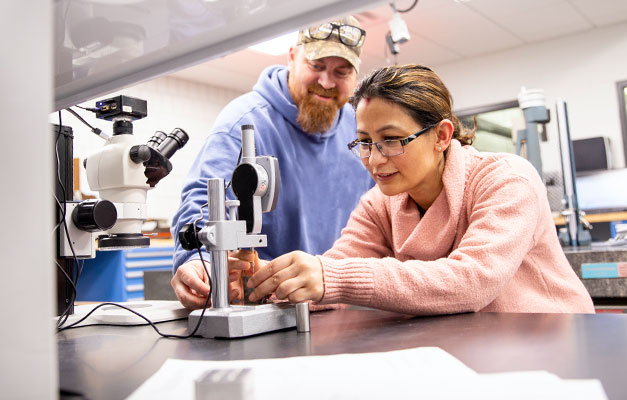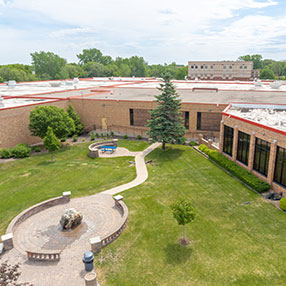Quality Technician degree and Quality Inspector certificate programs at Anoka Technical College are designed to train you on the tools and processes to ensure the quality of finished goods and services in manufacturing.
Quality Inspectors put their strong attention to detail and data-driven mindset to assure that the quality of manufactured products meet the requirements of the customer and regulatory bodies.
Developed in partnership with manufacturing partners, the Quality programs at Anoka Tech prepare you for the workplace and certifications to advance your career.
Why Study Quality Tech at Anoka Tech?

Prepares students for ASQ Certification

Learn on state-of-the art equipment that matches industry

Only degree program in Minnesota
Industry & Career Outlook
Potential Jobs:
- Quality Inspector
- Quality Technician
Salary Information:
$25-27 per hour entry-level wage
Salary increases rapidly with certifications and experiences.
Hear from Students
Other Program Info
Students learn on state-of-the art equipment in a Quality/Metrology Lab that matches industry to develop the problem-solving skills to quickly transition and learn new equipment on the job.
The program is designed to integrate with the full suite of industry programs offered at Anoka Tech, so the learning environment reflects the workplace.
Take a self-guided virtual tour of our campus to see what it's like to be a student at Anoka Tech. View program labs, common student spaces, campus offices and more.
Quality Inspector
Certificate
CNC Manufacturing Technology
AAS degree, diploma
CNC Service Technician
Diploma
Machine Technology
Certificates
Info for Current Students
Upon completion of this degree students will be able to competently use tools and processes utilized in industry for the inspection of finished goods. Students continuing to the Associate in Applied Science (AAS) degree combined with experience in the field will also be able to test for the American Society of Quality (ASQ) Certification for a Quality Technician.
Students must earn a cumulative 2.0 GPA or higher to be eligible for graduation from this program.
Start Dates:
Fall semester: August



